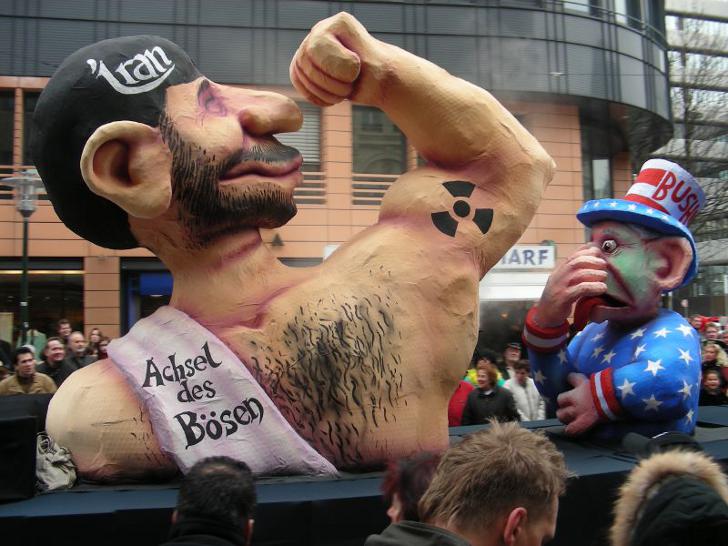The Carnival season in Western Germany is often referred to as “the fifth season”. It officially opens on November 11, but there are no Carnival celebrations during the Christmas holidays. The festivities start in early January, but the actual Carnival week begins on Fat Thursday and culminates on Rose Monday (Rosenmontag).
The Düsseldorf Carnival was officially established in 1825. It is organized by the Düsseldorf Carnival Committee that comprises representatives of approximately 60 carnival clubs. The committee is responsible for electing the Carnival Prince, coordinating all events and organizing the Grand Parade. More than 300 masquerade balls and carnival sessions are held in Düsseldorf between November 11 and Ash Wednesday.
As we’ve already mentioned, the Carnival week begins on Fat Thursday. In Düsseldorf, Fat Thursday is generally referred to as Old Women’s Carnival (Altweiberfastnacht). On this day, women in carnival costumes and masks storm into the City Hall, take the Mayor hostage and demand a large bottle of wine, dancing and singing as a ransom. Another tradition of the day is tie cutting: women cut men’s ties whenever they get hold of them. Besides, on Fat Thursday women are allowed to kiss any men who passes their way. One of the day’s highlights is the street carnival in Altstadt (Düsseldorf’s Old Town).
A children’s and youth parade (Jugendumzug) takes place in the city center on Carnival Saturday. Carnival Sunday features a street parade that marches along the Königsallee. The main highlight of the Düsseldorf Carnival is the Rose Monday Procession (Rosenmontagszug). It’s a spectacular parade with about 60 decorated floats and countless walking groups that lasts for 4 to 5 hours. The procession is approximately 2.5 kilometers long, can you imagine?
The Carnival of Düsseldorf ends on Ash Wednesday, the first day of Lent. Revelers get together one last time to burn the effigy of Hoppeditz, the local figure of an eloquent jester that represent the spirit of the Carnival.

Photo: Seth Persons




